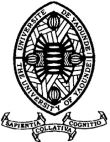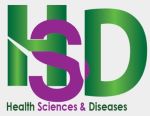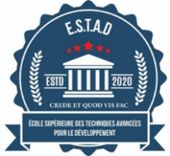Niveau de Connaissance du Personnel Soignant sur la MAPA (Mesure Ambulatoire de la Pression Artérielle) dans le District de Bamako / Mali
DOI:
https://doi.org/10.5281/hra.v1i4(Suppl%201).5005Keywords:
mesure ambulatoire de la pression artérielle, MAPA, connaissance personnel soignant, district de BamakoAbstract
RÉSUMÉ
Objectif. L’objectif de l’enquête était d’évaluer le niveau de connaissance du personnel soignant sur la MAPA (mesure ambulatoire de la pression artérielle) dans le district de Bamako / Mali. Méthodologie. 250 volontaires médecins et internes de médecine ont participé à l’enquête réalisée du 1er janvier au 30 juin 2022 (6 mois) dans le district de Bamako. Résultats. Il ressort de l’étude que le niveau de connaissance des enquêtés sur la MAPA reste limité. En effet 98% de nos services hospitaliers ne disposent pas d’appareil d’enregistrement de MAPA notamment la plupart des centres hospitalo-universitaires (CHU) et les centres de santé de référence (CS Réf) de Bamako. En outre, 80,4% (201) des médecins interrogés ignoraient les seuils de valeurs d’interprétions de MAPA chez l’adulte de plus de 18 ans. Par ailleurs, 84,8% (212) des participants à l’enquête ne connaissaient pas les critères de validation de la MAPA en majorité les médecins généralistes. Seuls quelques cardiologues avaient plus ou moins une idée sur les critères de validation de la MAPA. 66,4% (166) de la population d’étude n’ont jamais demandé la MAPA durant leur exercice pratique de médecine. 88,4% (221) des enquêtés ont affirmé, qu’ils ne savaient pas lire correctement un enregistrement de MAPA. 96,4% (241) médecins souhaitent bénéficier d’une formation sur la MAPA car de plus en plus la prise en charge des patients hypertendus repose sur cette mesure ambulatoire de la pression artérielle pour limiter l’effet « blouse blanche ». Conclusion. La connaissance de nos médecins praticiens sur les conditions d’utilisation de l’appareil d’enregistrement de MAPA, les indications sans plus de précisions, les critères de validations et, l’interprétation des données issues de la MAPA, est nettement insuffisante.
ABSTRACT
Objective. The objective of the study was to assess the level of knowledge of health practitioners about ABPM (ambulatory blood pressure monitoring) the district of Bamako. Methods. 250 volunteer doctors and medical interns took part in the survey carried out from January 1 to June 30, 2022 (6 months) in the district of Bamako. Results. 98% of our health structures do not have an ABPM recording device, including most of the university hospital centers (CHU) and reference health centers (CS Ref) in Bamako. Also, 80.4% (201) of physicians (i.e., 201 health personnel) were unaware of the ABPM interpretation value thresholds in adults over 18 years of age and 84.8% (212) of survey participants were unaware of the validation criteria for ABPM mostly general practitioners. Only a few cardiologists had more or less an idea of the ABPM validation criteria. Moreover, 66.4% (166) of the study population never asked for ABPM during their practice of medicine and 88.4% (221) of respondents said that they could not read a ABPM recording. Finally, 96.4% (241) expressed the desire to benefit from training on ABPM. Conclusion. It appears from this study that the level of knowledge of the respondents remains limited. Because the care of hypertensive patients is increasingly based on ABPM to limit the "white coat" effect, training is needed.
Downloads
Published
How to Cite
Issue
Section
License
Authors who publish with this journal agree to the following terms:
- Authors retain copyright and grant the journal right of first publication with the work simultaneously licensed under a Creative Commons Attribution License CC BY-NC-ND 4.0 that allows others to share the work with an acknowledgement of the work's authorship and initial publication in this journal.
- Authors are able to enter into separate, additional contractual arrangements for the non-exclusive distribution of the journal's published version of the work (e.g., post it to an institutional repository or publish it in a book), with an acknowledgement of its initial publication in this journal.
- Authors are permitted and encouraged to post their work online (e.g., in institutional repositories or on their website) prior to and during the submission process, as it can lead to productive exchanges, as well as earlier and greater citation of published work










